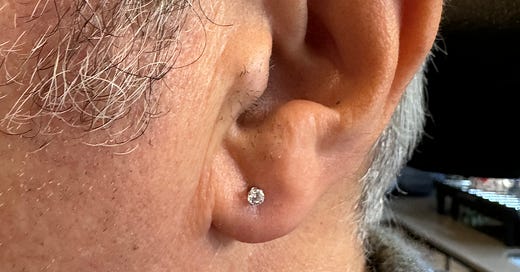WHAT WOULD WE BE DOING NOW?
To be motivated, there must be an imaginary, a store of images that nurture our desire, allowing us to construct cities, space stations, and write novels.
Thank you for reading The Kureishi Chronicles. As I continue to write via dictation with the help of my family, your support means everything.
Your contributions go towards my considerable care needs. If you enjoy my work, please consider becoming a paid subscriber—it truly makes a difference.
Last night, Isabella was reading to me from the newspaper. Listening to her, while thinking of other things, I suddenly said, “What do you think we would be doing now, you and I, if this accident hadn’t happened?”
Her face changed. With some distress, she said, “We can’t go there. It is not fair to indulge in that kind of thinking. The comparison would kill us.”
But I thought: who doesn’t imagine another life, a better one, running parallel to their own; an ideal other world, which feeds us emotionally, sexually, intellectually?
The Buddhist idea of living in the so-called present is impossible and against reality because our lives are built around a necessarily imagined future. We are constantly in dialogue with this phantasised world; an ongoing conversation about our jobs, creative pursuits, sex, our partners, or money. We negotiate and argue with it, building it up and adding details.
To be motivated, there must be an imaginary, a store of images that nurture our desire, allowing us to construct cities, space stations, and write novels. The immigrant experience, for instance, is centred around desire: a better world is possible.
Keep reading with a 7-day free trial
Subscribe to THE KUREISHI CHRONICLES to keep reading this post and get 7 days of free access to the full post archives.




